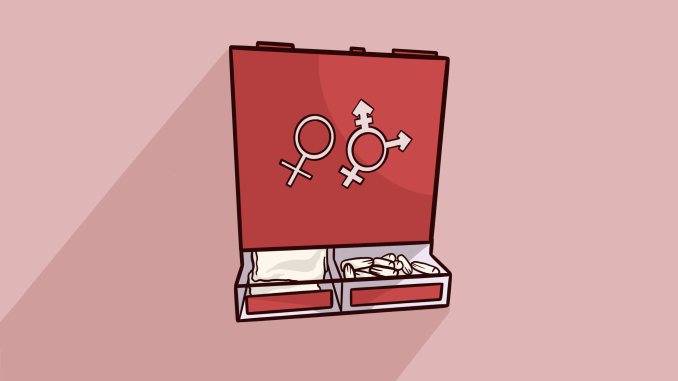
Nearly 60 percent of Temple University students have or know someone who has struggled with period poverty — limited access to menstrual hygiene products and education — and nearly all students believe they should have access to free and safe period products on campus, according to an October 2022 survey created by Kendall Stephens, a senior social work major.
Before creating her survey, Stephens talked to people around Main Campus about their experiences with period poverty to learn how it affects the Temple community.
“I was horrified and in tears from what I was hearing,” said Stephens, who is also the creator of the Temple Initiative for Menstrual Equity, which advocates for ending the inaccessibility of period products. “I was hearing from over a dozen people, a dozen women specifically, who had to either miss class or had to take a break from school because they had to endure toxic shock syndrome as a result of inaccessibility to menstrual products.”
Temple should offer safe, free and accessible period products, like pads, tampons, period underwear and diva cups, in all bathrooms on campus, including men’s and gender-neutral bathrooms, to reduce period poverty.
Ten percent of menstruating college students experience period poverty monthly, and many face social, cultural, economic and political barriers, according to a February 2022 study by the Journal of Global Health Reports.
Period poverty could stem from a lack of access or affordability to menstrual supplies and education. Some students are only able to get products when they’re free or borrowed and often resort to wearing products longer than suggested or even going without them.
“[Period poverty] can often resort to using unhygienic products to offset not having enough money for menstrual products, so, like rags, or I know some people use socks sometimes,” said Jennyfer Ngo, a senior biology major and president of Temple’s PERIOD chapter, a national menstrual equity advocacy group.
Temple can help prevent risks of period poverty, like TSS, by providing free and easily available menstrual products in all campus bathrooms. Instead, they have taken steps in the opposite direction.
Starting in the fall of 2017, Deborah Cai, a communication and social influence professor and senior associate dean at the Klein College of Media and Communication, noticed coin-operated period product dispensers inside women’s bathrooms being removed allegedly due to vandalism.
Then, in the spring semester of 2018, Cai and Maya Minhas, a communication studies student who graduated in May 2018, began stocking Annenberg Hall bathrooms with pads and tampons.
In January 2019, dispensers from Aunt Flow, an organization that provides free menstrual products, were added to Annenberg’s women’s restrooms, and Klein now funds supplies through the college’s budget.
“Women need respect and this is a way to show it, and it helps reduce the absenteeism of female students or any student dealing with a period or missing class or being late to class, so it’s beneficial to everyone,” Cai said.
Period poverty disproportionately affects students of color, first-generation, transgender and nonbinary students assigned female at birth because many don’t aren’t able to access or afford menstrual products.
“AFAB and nonbinary trans people, what I’ve noticed is hesitancy to reach out and speak out about how menstrual inequality and inequity has affected their lives, and a lot of it has to do with anti-trans rhetoric and systems and attitudes and beliefs that have silenced them into silos of shame,” Stephens said.
Currently, the Cherry Pantry and Temple Student Government’s office, and the women’s restrooms in Annenberg are some of the few places on campus that offer free pads and tampons.
Many students may not be able to travel across campus to Annenberg Hall, the Howard Gittis Student Center or other restrooms when they need menstrual products. Faculty members also sometimes stock campus restrooms, but it should be the university’s responsibility, not the Temple community’s.
All Temple restrooms should offer free period products for all students because period poverty is a serious issue on campus, and the university has the ability to address it.
“We’re not handing out $50 bills, okay, we’re handing out products that people need to meet their menstrual needs, period,” Stephens said. “This is a simple fix.”



Be the first to comment